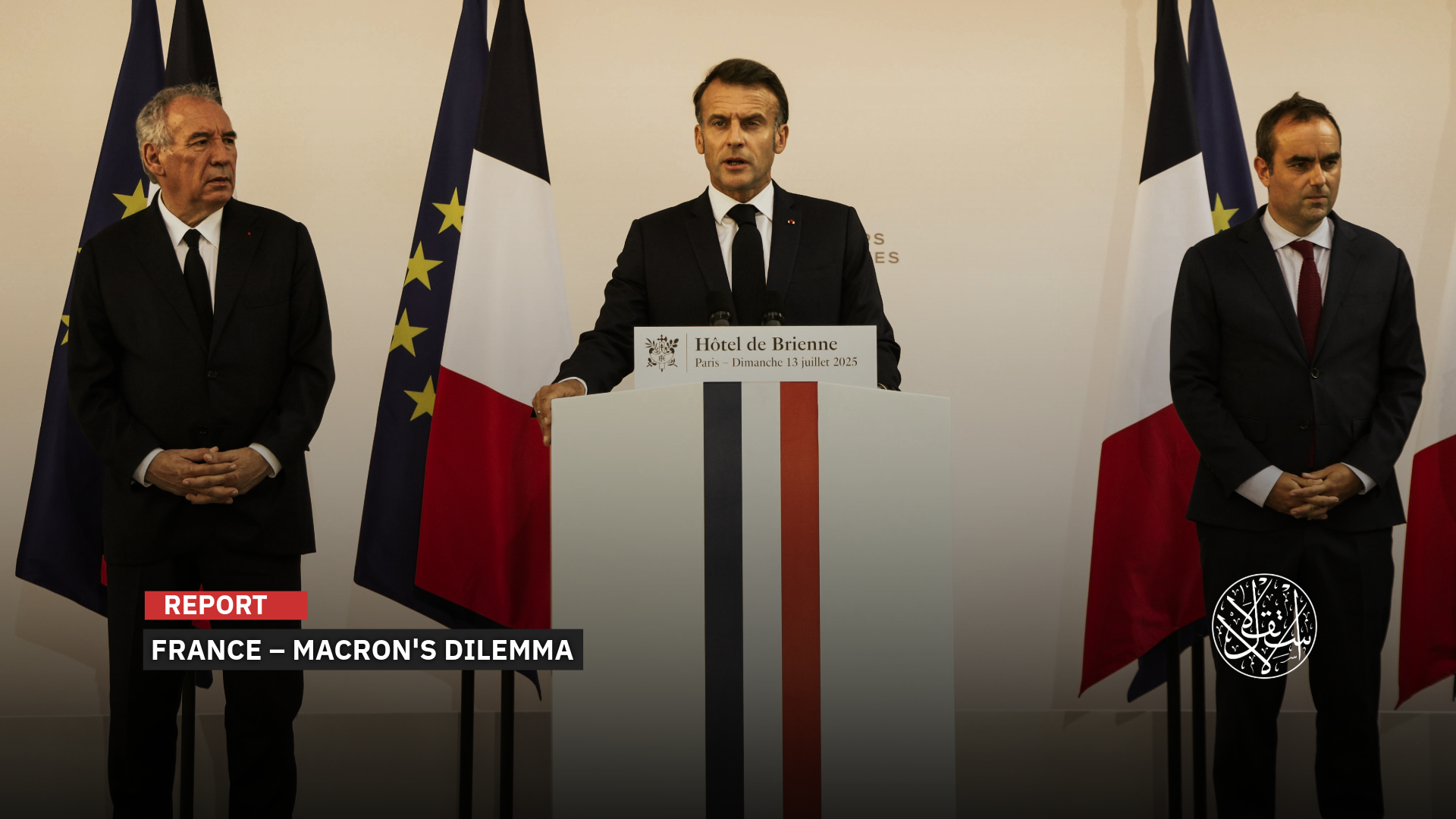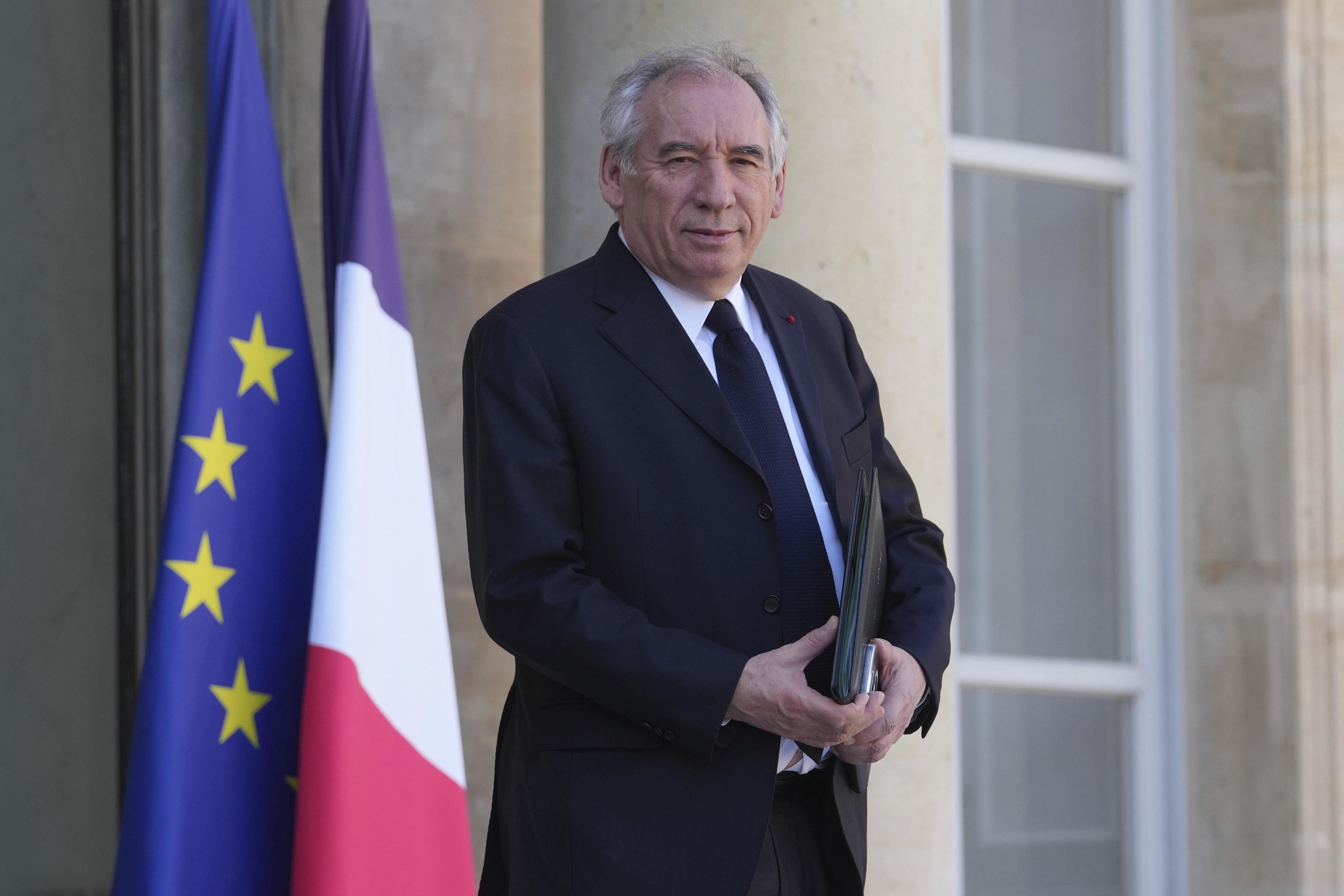How Political Instability and Nationwide Protests Affect French Politics

“Lecornu will become Macron's fifth prime minister in less than two years after parliament.”
Although the far right and left-wing parties in France disagree on almost everything, they united on September 8 to bring down the government of Francois Bayrou, refusing to grant his plan to address the country's spiraling debt to the confidence of the National Assembly.
Despite the French presidency announcing the following day that Defense Minister Sebastien Lecornu would be appointed as prime minister, several steps must be taken before he can form a new government.
Reuters stated that Lecornu faces an almost impossible task: uniting the National Assembly and finding a public finance reform plan that will satisfy everyone.
French public debt reached approximately €3.345 trillion at the end of the first quarter of 2025, equivalent to about 114% of the country's GDP. This will result in interest payments exceeding € 67 billion by the end of this year.
Adding to the severity of the situation, the current political crisis coincides with calls for protests against economic and social crises, amid growing fears that these protests could escalate, as seen in the country several years ago.
Amid this uncertain atmosphere, the Fitch credit rating agency will issue its rating of French debt on September 12, and it is expected that the rating may be downgraded.
Political Legitimacy
As expected, French lawmakers recently voted to dismiss the government of Francois Bayrou, just nine months after he took office, following a vote of confidence in the National Assembly called by the prime minister, which he lost by a wide margin, with 364 deputies voting against him and only 194 in favor.
This result shows that opposition leaders from across the political spectrum carried out their threats to topple Bayrou's government, despite their differing objectives and agendas.
Following this, the far-right National Rally (RN) party called for the dissolution of the National Assembly and the holding of snap elections.
However, French President Emmanuel Macron has repeatedly ruled out this possibility, arguing that he has already tried it without achieving any decisive results.
On the other hand, the Socialist Party has stated its readiness to take power as part of a left-wing government, excluding what they call ‘Macronists’, referring to the ruling Renaissance party.
In light of these positions, Macron's dilemma is growing, as his popularity has fallen to its lowest levels since he came to power in 2017.
More than 77% of French citizens have expressed their dissatisfaction with Macron's administration, placing him before mounting challenges until the end of his second presidential term in 2027.
A large segment of the French political establishment has blamed President Macron for the current political turmoil due to his sudden decision in 2024 to dissolve parliament following the far-right's victory in the European Parliament elections.
However, the snap elections did not produce a clear majority, with the Socialists coming in first place.
Macron preferred to seek other alliances, away from the left, forming an alliance with the Republicans and securing scattered support from other parliamentary groups.
But this fragile majority quickly proved vulnerable to collapse with every crucial vote, starting with the 2026 budget bill.
Bayrou personally called for a vote of confidence in his government, arguing that the budget proposal, which includes cuts of €43.8 billion, needs strong political legitimacy. But the National Assembly voted to dismiss his government.

Difficult Task
On September 9, the Elysee Palace announced that Macron had appointed Defense Minister Sebastien Lecornu, 39, as the new prime minister, making him the seventh prime minister under Macron's presidency, and the fifth since the start of his second term in 2022.
In his speech during the ceremony, Lecornu pledged to adopt a new approach before forming his government to lead the country out of its political crisis.
He also promised to implement profound changes and pursue new political paths.
According to the French newspaper Ouest-France, Lecornu has until October 13 to prepare the 2026 budget and submit it to the National Assembly.
Le Figaro considered this appointment not entirely surprising, noting that this personal compatibility makes Lecornu a safe choice, allowing Macron to steer policy without internal conflicts.
Lecornu entered politics, canvassing for former President Nicolas Sarkozy when he was 16.
He became mayor of a small town in Normandy when he turned 18 and then former President Sarkozy's youngest government adviser at the age of 22.
He left the LR party to join Macron's centrist political movement when the president was first elected in 2017, and became an integral part of all subsequent governments.
He is known for his support of traditional right-wing policies, yet Macron tasked him with consulting with the political parties in the National Assembly to secure approval of the state budget and build the necessary agreements for the coming months.
The Elysee Palace press release clarifies that the new prime minister will only be asked to propose a government after these discussions, reflecting a cautious strategy to avoid immediate clashes, according to Le Figaro.
Politically, Lecornu has a reputation for maintaining relationships with diverse groups, including the RN, as his dinners with Marine Le Pen and Jordan Bardella previously caused a stir.
Within the presidential camp, Lecornu relies on the goodwill of Bruno Retailleau, the head of the LR, who is likely to retain his position in the new government, especially since the two men are on good terms and communicate regularly.
Lecornu’s relationship with Gabriel Attal, head of the Renaissance party's parliamentary group, has long been strained, which could complicate matters within the presidential party.
The far-left France Unbowed party announced that it will table a motion of no confidence against Lecornu when he presents his government to the National Assembly.
The Socialist Party argued that appointing this right-wing figure to the post exposes Macron to public anger and institutional paralysis.
The RN indicated that it is ready to work with the new prime minister on the budget, provided its demands are met.

Popular Protests
Under the slogan ‘Block Everything’, France witnessed one of its largest waves of street protests on September 10, coinciding with the new prime minister's inauguration.
Observers believe the spark for the protests originated on social media several months ago, evolving into a widespread mobilization fueled by a buildup of political and social crises, most notably the pension reforms, the dissolution of the National Assembly, and austerity policies.
The protesters specifically demanded the repeal of an austerity plan proposed by the previous government before its fall, which included freezing pensions, eliminating two national holidays, and cutting health budgets.
The 2026 budget proposal appears to have reignited a sense of social injustice among a segment of the French population, particularly coinciding with growing distrust of the ruling elite following a series of political crises the country has endured.
Members of the ‘Block Everything’ movement, which is leading the protests, stated that they believe the political system is no longer fit for purpose.
Analysts say the movement began within right-wing groups before gaining support from both the left and far left, as well as labor unions.
In this context, reports indicate that anti-austerity protests in France saw the participation of at least 250,000 people in Paris, Lyon, Marseille, Nantes, and other cities.
Authorities recorded hundreds of arrests and used tear gas to disperse the demonstrators, as calls for broader civil disobedience grew louder.
Further escalation is expected on September 18, when unions have called for a large-scale, coordinated strike, a development that could prove to be the most serious test France has faced in years.
These protests bring to mind the Yellow Vest movement that erupted in France in 2018 against rising fuel prices, attracting tens of thousands of protesters who felt a sense of economic injustice.
Those protests were not affiliated with any political party or union, nor did they have a leader, but they ultimately achieved some success, most notably a raise in the minimum pension.
Economic analyst Younes Karim told Al-Estiklal that “Bayrou government’s fall was not merely a passing political event in the history of the Fifth French Republic, but a direct reflection of a long-term fiscal and economic trajectory that has led France to a precarious situation.”
“The last balanced budget was in 1974, and since then, successive governments, both the right and the left, have resorted to borrowing to cover their deficits,” he said.
He also stressed that “Bayrou government’s fall has exacerbated the financial, economic, and political paralysis currently affecting France, at a critical time for Europe.”
“The recent protests in French cities threaten the country's ability to control its debt, and could lead to a further downgrade of its credit rating,” he added.









